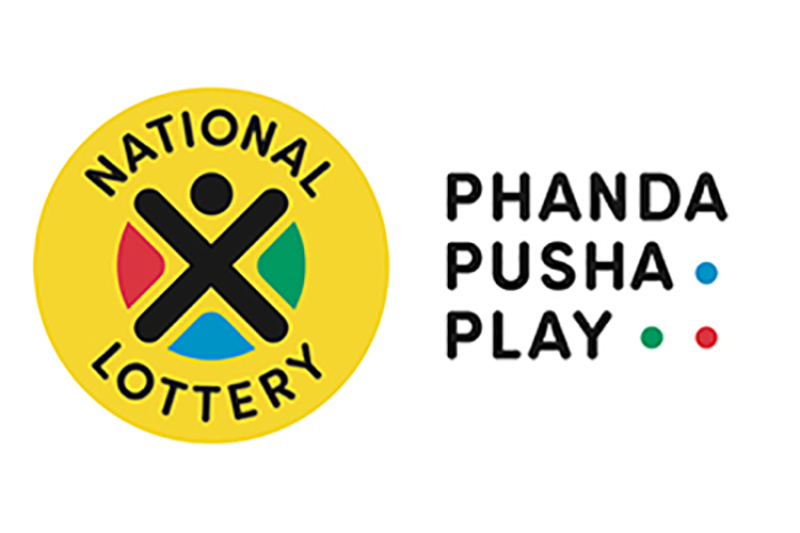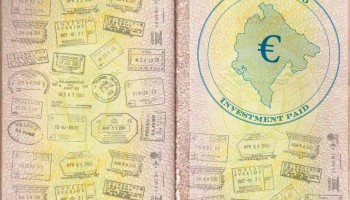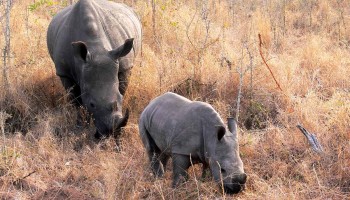Anomalies in the records of the national lottery make it difficult to tell how much of the money reached its intended recipients, or whether the school was legally entitled to receive the funds in the first place.
The National Lottery Commission regulates the lottery, which has paid out 44 percent of its annual receipts to charity since 2002 using a grant system.
Tsietsi Maselwa, the head of legal services for the lottery commission, insists that the transactions met all legal requirements and said, “the commission funds non-profits as long as basic requirements are met.”
The grants in question were uncovered using a data analysis tool built by OpenUp, a non-governmental civic tech organization, to help journalists easily search through all disbursements made by the lottery since it was launched in 2002. The South African probe is part of a transnational investigation into the worldwide lottery industry by a group of 40 journalists and several publications in different countries.
Using the tool, reporters examined 15 years of lottery grants, pinpointing how much was handed out, who got the grants, and why. They determined that in 2015 and 2016, the lottery gave nearly US$ 3.7 million to a school owned by businessman and farmer Humbulani Tshifhango to give out as sub-grants to other organizations.
The lottery sometimes uses a “conduit” system to send money to small or new organizations that do not meet the lottery’s stringent requirements. Conduits are usually bigger, more established organizations that are supposed to distribute the grants to the ultimate recipient.
Tshifhango runs the Konani Pfunzi Learning Centre, a private school in the Limpopo province bordering Botswana, Zimbabwe and Mozambique. The school was chosen as a “conduit” for two grants: one for a nationwide drought relief program and one to support a tribal heritage festival.
Both projects related to the grants appear to have been implemented as intended.
Asked why a tiny school in a small town with less than 180 pupils taught by 14 teachers was chosen to handle one of the 25 largest grants ever awarded by the lottery, a spokesperson said that “every application that meets the criteria/requirements and qualifies will be funded, no matter its size.”
A tangle of documents
Officially, the contract was given out in the name of the school: the Konani Pfunzi Learning Centre.
Tshifhango is the director of the school, which has been registered as a private business since 2003. The lottery is not supposed to give money to for-profit businesses. The school does however have a related non-profit arm, also called the Konani Pfunzo Learning Centre.
Maselwa is adamant that the non-profit received the grant and to prove his point, he produced a scanned copy of a Department of Social Development (DSD) certificate stating that the school’s related non-profit arm, the Konani Pfunzo Learning Centre, was registered as a non-profit organization, on Aug. 17, 2004.
A search of the DSD registry of non-profits reveals that the registration number on the certificate Maselwa provided is actually that of the “Konani Pfunzo Foundation”, rather than “Konani Pfunzo Learning Centre.”
A DSD spokesperson explained it this way: The organization was originally registered with the DSD as the Konani Pfunzo Learning Centre in 2004, but changed its name to Konani Pfunzo Foundation in December 2016, almost a year after the second grant was paid out.
Meanwhile, the Companies and Intellectual Properties Commission (CIPC), a registry of private companies, shows that a private company with the slightly different name -- Konani Pfunzo Comprehensive Learning Centre -- was first registered in 2003 as a for-profit business entity. In 2010, it converted to a for-profit limited liability company.
Tshifhango did not reply to numerous requests for clarification or comment. His other businesses, ranging from a fresh produce supplier to transport and property companies, were most registered at the same address in Limpopo.
Over the past seven years, at least three of his enterprises have been struck off the registry, while a fourth is currently undergoing the process, according to corporate records maintained by the CIPC. It is not clear why.
Lottery commission officials would not say how they came to pick Tshifhango’s school as a conduit.
Boreholes and Another School
The lottery commission’s annual reports show that Konani Pfunzo received about US$ 270,000 in 2015 and about US$ 3.4 million in 2016 for the two grants. The reports indicated that the larger amount was intended for Operation Rehydrate, a project to sink 200 boreholes in a search for new water supply in four provinces across South Africa. The smaller amount was for a Ndebele heritage festival (The Ndebele are a people who live primarily in South Africa’s Limpopo and Mpumalanga provinces; Ndebele is one of the country’s 11 official languages.)
The paperwork trail was even more difficult to follow because the borehole project was actually managed by yet another organization: the Tshikovha Graduate Academy, which has no other connection to Tshifhango and was only registered as a non-profit company in January 2016, around two months before the money was paid out and the first boreholes were drilled.
As the academy was too new, and therefore did not have the financial reporting history to legally receive the funds, the money was channeled through Konani Pfunzo, lottery commission members said.
The academy is linked to Tshikovha Environmental and Communication Consulting, which was first registered as a closed corporation in 2005. In June 2017, its status changed to “private company.” Tshikovha’s sole director, Ngwedzeni Moudy Mudzielwana, is also a director of the academy. The non-profit and the private company share premises and phone numbers.
Financial records filed with the DSD by Konani Pfunzo Learning Centre make no mention of lottery funds (or similar amounts) in either 2015 or 2016. A request for clarification to the school’s auditors has not been answered. Because Tshikovah Academy is newly registered, it has yet to file its first financial statement with the DSD.
Maselwa, the lottery commission’s legal representative, said he had no problem with any of this. In a written response to reporters’ questions he said the regulations were relaxed in 2015 to allow “small or emerging non-profits to get funding.”
Technically, he said, even a non-profit organization registered just a day ago can ask the commission for funding.
Asked how Konani Pfunzo had been chosen as a conduit, Maselwa did not address Konani Pfunzo specifically but said the commission doesn’t need a formal request or application from an organization: the minister or the commission on its own can pick out a recipient.
The borehole project was never put out to tender, Maselwa said, adding that the lottery commission does not need to follow state bidding and tender procedures.
Another puzzling aspect of the borehole grant is that its amount varies depending on the source.
The commission’s 2016 annual report records Konani Pfunzo as having received 55.4 million rand (about US$ 3.4 million) in 2016, while its Annual Performance Plan 2017-2018 (see page 16), a 2016 Stakeholders Update, and a news release published on its website all give its value as 50 million rand (about $3.07 million).
A lottery spokesperson could not explain the almost US$ 307,000 discrepancy, but insisted “the total allocation was for drought relief.” Maselwa agreed that the “full” US$ 3.4 million had gone to the borehole project. By law, any organization that acts as a conduit is limited to charging a fee amounting to five percent of the project value, but the fee is not to exceed US$ 11,200 (at current rates).
A series of spreadsheets provided by the lottery provided comprehensive details of dozens of boreholes dug as part of the project in remote villages throughout South Africa.
The second project funneled through Konani Pfunzo was a grant of just over US$ 270,000 (2015 rates) for “Ndebele Culture and Heritage Restoration,” a festival to promote the Ndebele culture.
Lottery officials said that in this case, Konani Pfunzo acted as a conduit for the Silamba Trust to receive the grant. Again, they did not say how the school was selected.
But a search of the DSD’s database of non-profit organizations and of the Department of Justice’s records found no trust under that name. Several online references, such as this one or this one, can be found referring to the trust, named after the late Ndebele King Silamba.
Lottery officials said they were satisfied that the festival took place as intended, and that they had received the required reports from the grantee, but did not provide copies of the reports upon request.
Investing in the People
Back on Tshifhango’s farm, things seem to be going well.
Maanda Bele, a reporter from the Limpopo Mirror posing as a customer wanting to buy a free-range chicken, visited the farm in Matanda, a village about 105 kilometers from the Zimbabwe border.
A man who told Bele he was Tshifhango’s brother, took the reporter on a tour of the farm. He said machines were used to clean and package chickens. Bele said “There appeared to have been large investments in the farm, including an extensive irrigation system.”
The Nzhelele area of Limpopo, where the village is located, has serious water shortages. The brother boasted about how many jobs they were creating as they worked to build a large chicken packaging plant and to supply fresh vegetables to local businesses.
“It’s a big farm with a beautiful house with a big, silver-gray Mercedes Benz parked outside,” Bele said. “There were lots of people working on the farm and we saw a young boy wearing a Lotto t-shirt playing outside.”
This article was researched and written with support from Trust Africa, a non-governmental organization which funds journalism, research and advocacy projects.
It is also part of the Global Anti-Corruption Consortium, a collaborative effort between OCCRP and Transparency International to fight corruption by combining investigative journalism and grassroots activism.






